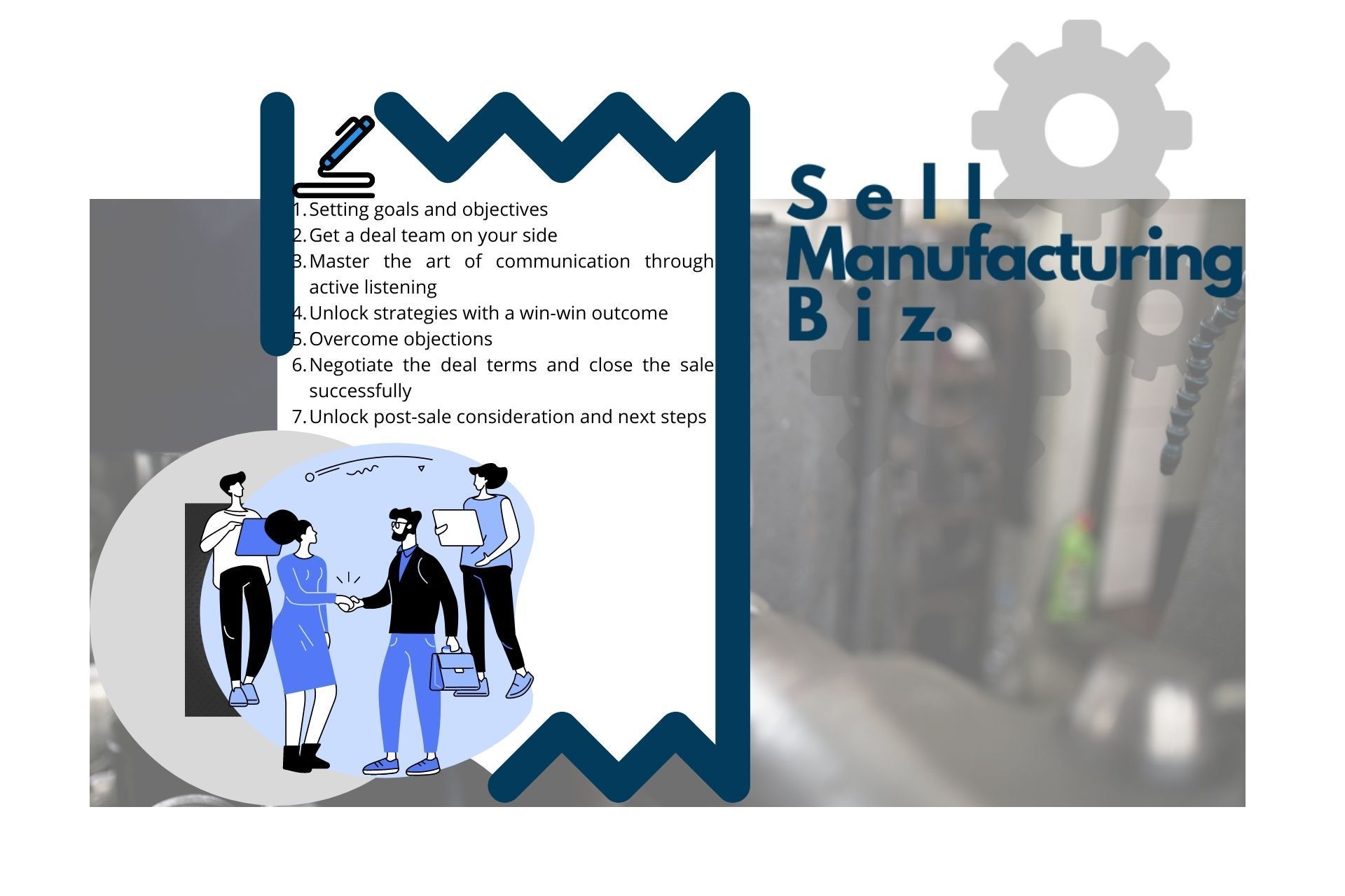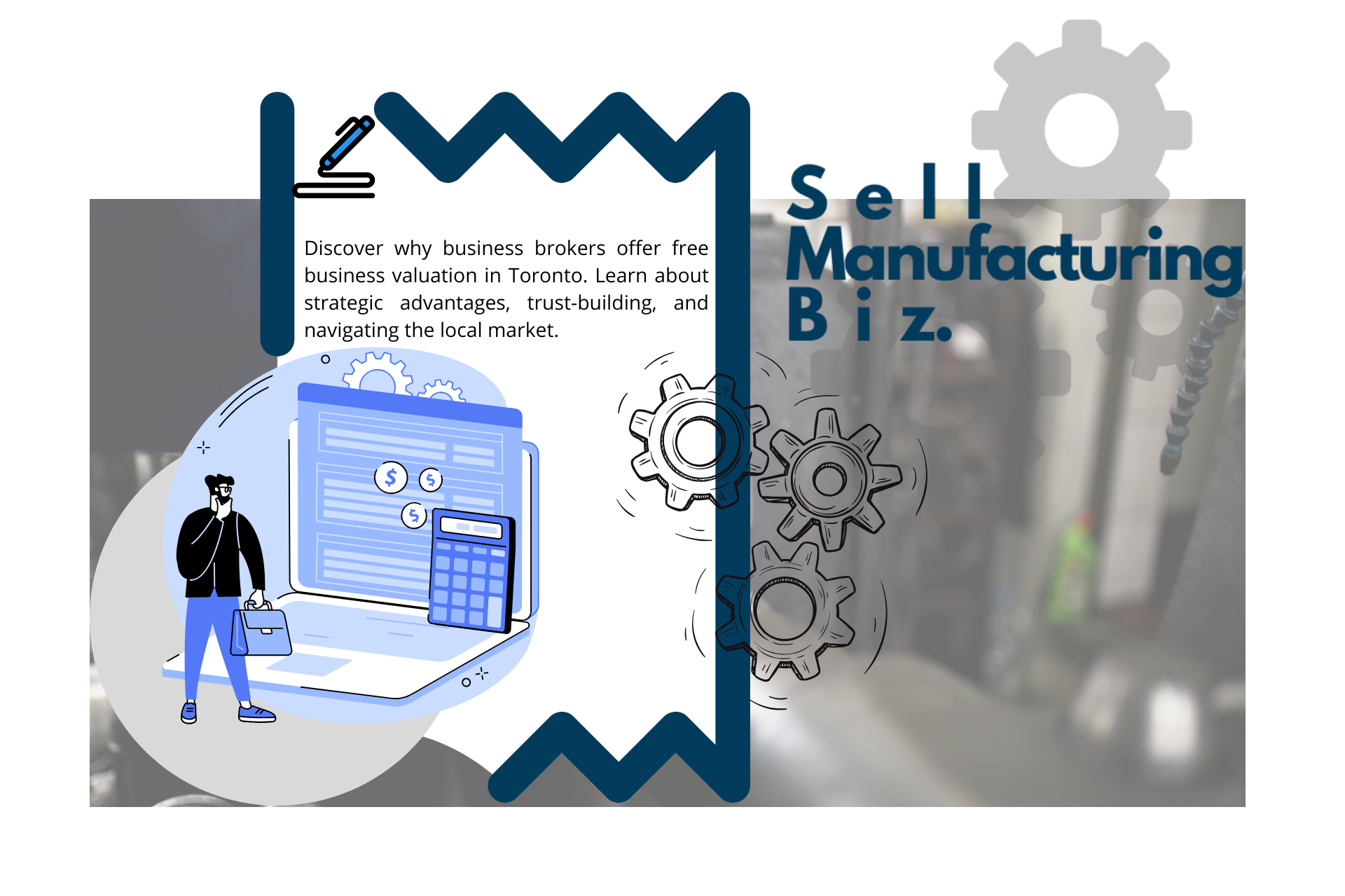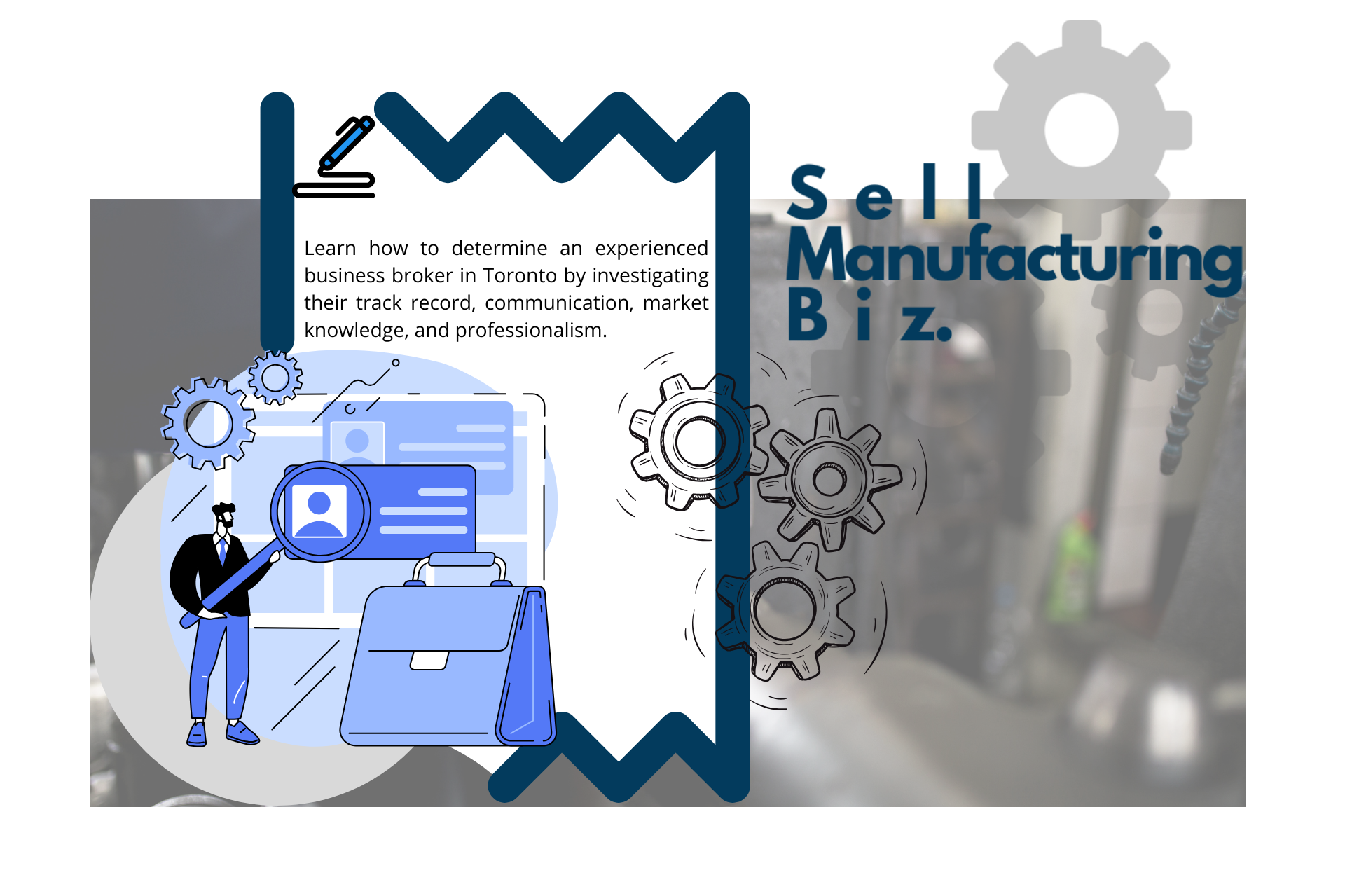The Art of Negotiation: How to Secure the Best Deal When Selling Your Ontario Business
How to Sell a Business in Ontario: Master Negotiations
Unlock how to sell a business in Ontario particularly in the manufacturing industry. In 7 steps, you'll get to master negotiation and close the deal on your own terms:
- Setting goals and objectives
- Get a deal team on your side
- Master the art of communication through active listening
- Unlock strategies with a win-win outcome
- Overcome objections
- Negotiate the deal terms and close the sale successfully
- Unlock post sale consideration and next steps

Are you ready to sail on the exciting journey of selling your Ontario business? The art of negotiation is a crucial skill that can make or break this pivotal moment in your entrepreneurial career.
In a competitive market, securing the best deal requires:
- Finesse,
- strategy,
- and a deep understanding of the dynamics at play.
This is where we come in.
As experts in the art of negotiation, we have helped countless business owners achieve their desired outcomes and maximize their profits.
In this article, we will guide you through:
- The intricacies of negotiation,
- providing you with valuable tips,
- and techniques to ensure a successful sale.
From setting your desired price to effectively communicating your value proposition, we will equip you with the tools you need to navigate the negotiation process with confidence and finesse.
Get ready to take your business sale to new heights and secure the best deal possible in Ontario.
Understanding the Importance of Preparation in Negotiation
Negotiation is not a spontaneous event; it requires careful planning and preparation.
Before diving into the negotiation process, it is essential to have a clear understanding of your business's:
- Strengths,
- weaknesses,
- and market position.
Conducting a thorough SWOT analysis will help you identify your competitive advantages and potential areas of improvement. Additionally, gather relevant financial data, such as revenue projections and historical performance, to support your negotiation strategy. By arming yourself with this information, you can confidently present your business's value proposition and justify your desired price.
Researching the market and valuing your Ontario business is another critical aspect of preparation. Understanding the current market trends, industry benchmarks, and comparable sales will give you a realistic perspective on the value of your business.
Consider engaging a professional business valuator who can provide an objective assessment of your business's worth. This valuation will serve as a foundation for your negotiation strategy, empowering you to negotiate from a position of strength and knowledge. Remember, the more prepared you are, the more likely you are to secure the best deal for your Ontario business.
If you're thinking of selling your business someday, you need to be prepared. The harsh reality is that only 30 to 40% of businesses listed for sale ever sell. That means most business owners are left disappointed and frustrated when they can't exit their business on their terms.
Why do so many businesses fail to sell? The experts agree that it comes down to a
lack of preparation. Many owners don't have a clear exit strategy, don't know how to value their business, don't have updated financial records, or don't have a strong marketing plan to attract buyers. These are all crucial factors that can make or break a deal. But you don't have to be one of them. You can be part of the successful minority who sell their businesses for top dollar and enjoy a smooth transition.
How?
By taking action today and getting your manufacturing business ready for sale. At the Ontario Commercial Group, we can help you do just that. We have the experience, the knowledge, and the resources to guide you through every step of the process.
We can help you:
- Assess the current state of your business and identify areas for improvement
- Create a realistic and attractive valuation based on industry standards and market trends
- Prepare a comprehensive and persuasive business profile that showcases your strengths and opportunities
- Market your business to our network of qualified buyers who are looking for businesses like yours
- Negotiate the best possible terms and conditions for your deal
- Facilitate the due diligence and closing process with minimal hassle and stress Don't just take our word for it.
Here's what some of our satisfied clients have to say about working with us:
"Ontario Commerciale Group helped me sell my business in record time and for more than I expected. They were professional, efficient, and supportive throughout the whole process. I highly recommend them to anyone looking to sell their manufacturing business." - William Cook, former owner of Progressive Machining Inc.
"I was impressed by Ontario Commercial Group’s expertise and attention to detail. They prepared a detailed and compelling business profile that attracted multiple offers from serious buyers. They also handled the negotiations and closing with skill and care. They made selling my manufacturing business easy and stress-free." - Kevin Martin, former owner of Core Tool Technologies.
"Sell My Manufacturing Biz managed by Ontario Commercial Group was a great partner in selling my company. They understood my goals and needs and tailored their services accordingly. They provided valuable advice and guidance along the way and helped me achieve a successful outcome. I would definitely work with them again." - Gary Malleck, former owner of Malleck Percision Machining.
Don't wait until it's too late. Start preparing your business for sale today and increase your chances of success. Contact us now for a free consultation and find out how we can help you achieve your goals.
Setting Clear Goals and Objectives for the Negotiation Process
Before entering into any negotiation, it is crucial to establish clear goals and objectives. What are your non-negotiables? What are your desired outcomes? Setting these parameters upfront will help guide your negotiation strategy and prevent you from making impulsive decisions. Take the time to identify your priorities and determine your ideal outcome. This will ensure that you stay focused and avoid getting sidetracked during the negotiation process.
In addition to setting goals, it is essential to establish your BATNA (Best Alternative to a Negotiated Agreement). Your BATNA represents the course of action you will take if the negotiation does not result in a satisfactory deal. By defining your BATNA, you can assess the viability of alternative options and make informed decisions during the negotiation.
Understanding your BATNA will also give you the confidence to walk away from a deal that does not meet your objectives. Remember, negotiation is a two-way street, and having a clear understanding of your goals and alternatives will enable you to navigate the negotiation process with clarity and purpose.
Building a Strong Negotiating Team and Selecting the Right Representation
Negotiating a business sale can be a complex and emotionally charged process. It is essential to assemble a strong negotiating team to support you throughout the journey. Your team should consist of individuals who bring diverse skills and perspectives to the table.
Consider involving professionals such as lawyers, accountants, and business brokers who specialize in mergers and acquisitions. These experts can provide valuable guidance and ensure that all legal and financial aspects of the negotiation are properly addressed.
When selecting representation, it is crucial to choose individuals who have a deep understanding of the Ontario business landscape and the specific industry in which your business operates. Look for professionals with a proven track record of successful negotiations and a strong network of contacts within the business community. Their expertise and connections can significantly enhance your bargaining power and increase the likelihood of securing the best deal for your Ontario business.
Remember, the strength of your negotiating team can make a significant difference in the outcome of the negotiation process.
Effective Communication and Active Listening During Negotiations
Effective communication is the cornerstone of successful negotiations. It is essential to clearly articulate your value proposition and convey your business's unique selling points. Highlighting your competitive advantages and the potential for future growth will help you justify your desired price and differentiate your business from competitors. Tailor your message to resonate with potential buyers and address their specific needs and concerns. By effectively communicating your business's value, you can increase buyer interest and strengthen your negotiating position.
Active listening is equally important during negotiations.
Take the time to understand the buyer's perspective, needs, and objectives. Ask probing questions and listen attentively to their responses. By demonstrating a genuine interest in their concerns, you can build rapport and foster a collaborative negotiating environment.
Active listening also allows you to identify potential areas of compromise and find creative solutions that satisfy both parties interests. Remember, negotiation is not a zero-sum game; it is an opportunity to create value and build mutually beneficial relationships.
Strategies for Creating Win-Win Outcomes in Negotiation
Negotiation is not about winning at all costs; it is about creating mutually beneficial outcomes. Adopting a win-win mindset is crucial for fostering collaboration and reaching agreements that satisfy both parties.
One effective strategy for achieving win-win outcomes is to focus on interests rather than positions. Instead of fixating on specific demands, identify the underlying needs and motivations driving each party. By understanding these interests, you can explore alternative solutions that address both parties' concerns and create value.
Another strategy for creating win-win outcomes is to explore integrative negotiation techniques. Integrative negotiation involves identifying and capitalizing on areas of shared interest. Look for opportunities to expand the pie and find creative solutions that go beyond a simple exchange of concessions.
For example, consider offering additional assets or services that are of value to the buyer without significantly impacting your bottom line.
By adopting an integrative negotiation approach, you can maximize value creation and increase the likelihood of reaching mutually satisfactory agreements.
Overcoming Common Negotiation Challenges and Objections
Negotiation is rarely a smooth process. It is common to encounter challenges and objections along the way. One common challenge is the issue of price. Buyers may be hesitant to meet your desired price, especially if they perceive it as too high. In such cases, it is crucial to effectively communicate the value of your business and justify your asking price.
Highlight your business's unique selling points, growth potential, and competitive advantages. Provide supporting evidence, such as financial projections and market research, to substantiate your claims. By addressing buyer objections with confidence and evidence, you can overcome price-related challenges and secure a favorable deal.
Another common challenge in negotiation is the issue of timing. Buyers may have their timeline and may be reluctant to commit to a deal immediately. In such cases, it is important to be patient and maintain open lines of communication.
Understand the buyer's concerns and work together to find a mutually agreeable timeline. Flexibility and willingness to accommodate reasonable requests can help build trust and facilitate a smoother negotiation process.
Negotiating the Terms of the Sale Agreement and Closing the Deal
Once you have navigated the negotiation process and reached an agreement on the price, it is time to negotiate the terms of the sale agreement. This involves outlining the specific terms and conditions of the sale, including:
- Payment structure,
- transition period,
- non-compete agreements,
- and any other relevant provisions.
It is crucial to engage legal professionals who specialize in business transactions to ensure that the agreement is comprehensive, legally binding, and protects your interests.
During this stage, it is important to maintain open lines of communication with the buyer and address any outstanding concerns or issues. Be prepared for potential negotiations and be willing to make reasonable concessions to facilitate the closing of the deal.
Remember, the negotiation process does not end with the agreement on price; it extends to the finalization of the sale agreement.
By approaching this stage with diligence and a willingness to collaborate, you can successfully close the deal and secure the best outcome for your Ontario business.
Post-Negotiation Considerations and Next Steps
After the negotiation and closing of the deal, there are several post-negotiation considerations and next steps to keep in mind. Transition planning is crucial to ensure a smooth handover of the business to the new owner.
Develop a comprehensive transition plan that outlines key milestones, responsibilities, and timelines. Communicate this plan to the buyer and ensure that all parties are aligned on the transition process.
Additionally, consider the tax implications of the sale and consult with tax professionals to minimize your tax liability. Allocate the proceeds from the sale wisely, taking into account your personal financial goals and objectives. If you plan to reinvest the proceeds or start a new venture, seek professional advice to maximize your investment potential.
Finally, take the time to celebrate and reflect on your entrepreneurial journey. Selling a business is a significant milestone, and it is important to acknowledge your achievements and the value you have created.
Use this experience as a stepping stone for future endeavors and continue to leverage your negotiation skills in all aspects of your professional and personal life.
Conclusion: Mastering the Art of Negotiation in Selling Your Ontario Business
Selling your Ontario business in the manufacturing industry is an exciting and challenging endeavor.
- The art of negotiation plays a crucial role in securing the best deal and maximizing your profits.
- By understanding the importance of preparation, setting clear goals, and building a strong negotiating team, you can navigate the negotiation process with confidence and finesse.
- Effective communication, active listening.
- The adoption of win-win strategies can help create mutually beneficial outcomes.
- Overcoming common negotiation challenges and objections requires a combination of confidence, evidence, and flexibility.
- Finally, negotiating the terms of the sale agreement and closing the deal are critical steps toward a successful business sale.
- Post-negotiation considerations, such as transition planning and tax implications, should not be overlooked.
By following these guidelines and mastering the art of negotiation, you can take your Ontario business sale to new heights and secure the best deal possible.
Selling a business is a significant milestone, and it is important to approach it with diligence, professionalism, and a commitment to creating value. Embrace the negotiation process and unleash your full potential as a business owner and negotiator.
Final Take on the Next Steps
As you prepare to start on the transformative journey of selling your manufacturing business in Ontario, allow us to equip you with six invaluable tips that will set you on the path to success:
1. Plan for your exit. Selling a small and medium size machine shop business in Ontario can take a long time, so it's important to start early and have a clear strategy.
2. Know your objectives and expectations. What are you looking for in a buyer? What are your financial and personal goals? How much are you willing to compromise?
3. Understand your company's value. This is a crucial step to take when planning to sell your manufacturing business in Ontario. You need to know how much your business is worth and what factors influence its valuation.
4. Find the right buyer for your business. There are different types of buyers in the market, such as strategic buyers, financial buyers, or individual investors. You need to find the one that matches your criteria and has the resources and expertise to close the deal.
5. Be ready for due diligence. This is when buyers will want to know everything about your business, from its financial performance to its operational processes. You need to be prepared to provide accurate and complete information and answer any questions they may have.
6. Be flexible and open-minded. Negotiating a deal can be challenging and complex, so you need to be willing to adapt and compromise on some aspects of the deal.
We are a deal team of sell-side M&A advisors, also known as Canada's manufacturing business brokers. We have successfully closed hundreds of deals in Ontario, British Columbia, Edmonton, and Alberta Canada, and more than 15 years of deal-making experience and knowledge to help you sell your business for the best price and terms.
Sell My Manufacturing Biz has a deep understanding of the Canadian market and an extensive network of buyers, which allows us to find the most suitable buyer for your business. We also provide comprehensive support throughout the entire process, from initial valuation to post-closing integration.
At Sell My Manufacturing Biz, we are passionate about helping clients achieve their goals and maximize their value. If you are thinking about selling your profitable SMB manufacturing business, we would love to help you through the process and make it a smooth and rewarding experience.
Are you ready to sell your manufacturing company or are you still exploring your options? Whether you have made up your mind or not, you can start here or call (905) 847-8888 to get in touch with our expert deal team.
Our Certified M&A Advisor, Khaled Baranbo, will personally listen to your challenges and priorities and handle your inquiry with professionalism and confidentiality. Don't miss this opportunity to work with Sell My Manufacturing Biz, the leading broker for small and medium size manufacturing businesses in Canada.
Part of tips for
selling a manufacturing company in Canada series ->
Find a Business Broker Near You in Canada
Get in this queue for a whale’s tail. They are a beauty, eh
We just wanted to say hi and thanks for stopping by our little corner of the web. :) “Go ahead and eat your elephant ears on the chesterfield. I’ll come sit with you as soon as I take these runners off.” But, alas, this is the Internet.
However, we think you'll love our email newsletter about building value and properly position your manufacturing company before transition/exit your business.
As a special welcome gift for subscribing, you'll also get our helping and educational guides, tips, tutorials, etc.. for free.
It's filled with the best practices for retiring serial business owners like Joseph-Armand Bombardier, John Molson, Warren Buffett and many more.
Just sign up for our emails below.



